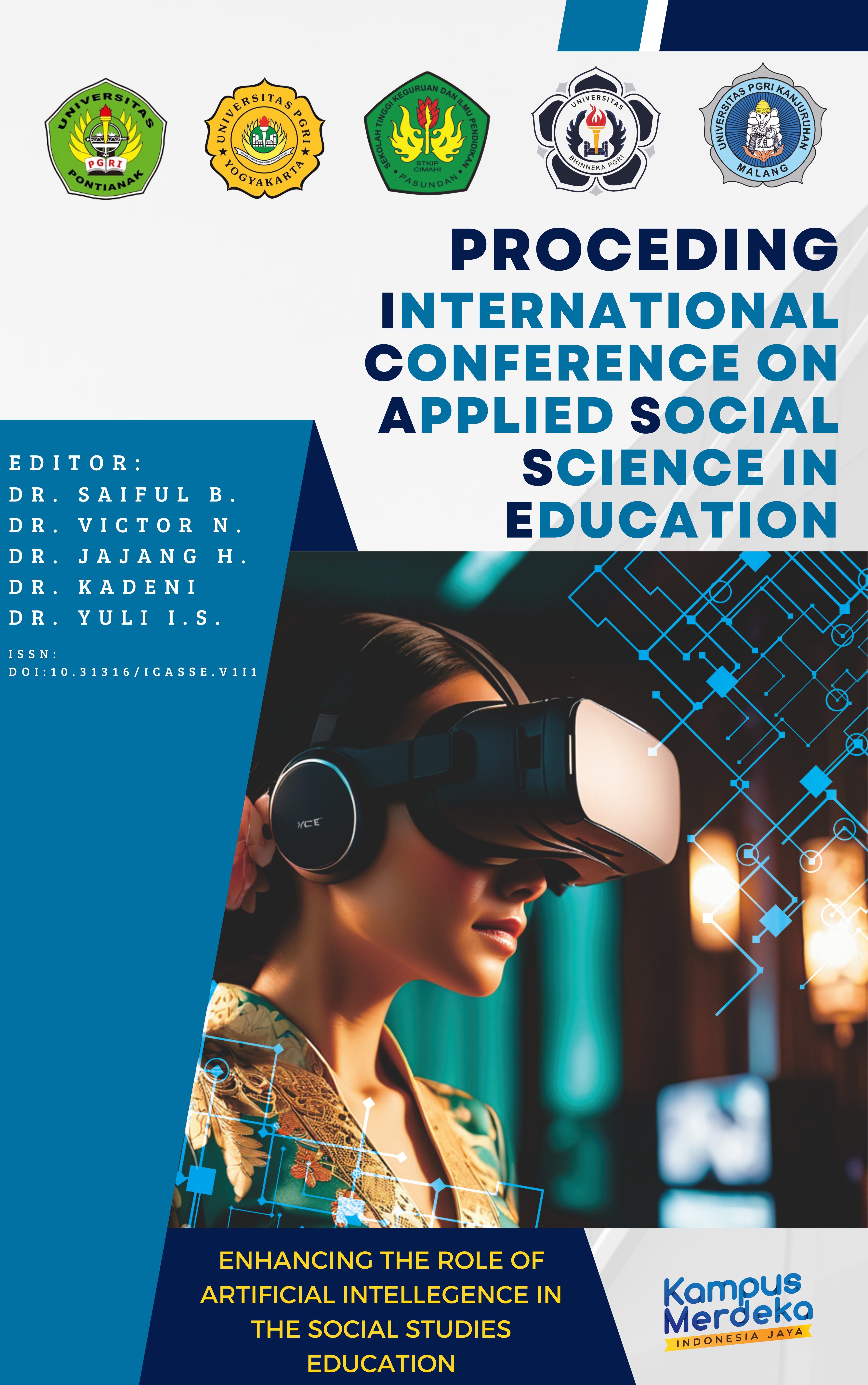THE EFFECT OF THE USE OF PROBLEM BASED LEARNING (PBL) MODEL ON IMPROVING STUDENTS' LITERACY SKILLS AND LEARNING MOTIVATION
DOI:
https://doi.org/10.31316/icasse.v1i1.7036Abstract
This study aims to analyze the effect of the use of PBL on improving literacy skills and learning motivation of grade IV students of SDN, Branggah through Social Studies Learning. The method used in this study is the Quasi Experiment Method. The data analysis technique used in this study is in the form of multiple-choice test questions with a total of 20 questions. The final results of this study include; First, there is a positive influence of PBL (X1) on the literacy (Y1) of students of SD Negeri Branggah, Lumbang District, Probolinggo. This can be said to be positive because the value of the determination coefficient (R2) is .677a which means that the independent variable PBL(X) is able to explain the literacy-bound variable (Y1) of 67.7% while the remaining 32.3% is explained by other variables outside the model. Second, there is a positive influence of PBL on the motivation of students of SD Negeri Branggah, Lumbang District, Probolinggo. This can be said to be positive because the value of the determination coefficient (R2) is .693a which means that the independent variable PBL (X) is able to explain the literacy-bound variable (Y2) of 69.3% while the remaining 30.7% is explained by other variables outside the model. So, the existence of PBL (X) has a positive impact on the literacy (Y1) and motivation of students (Y2) of SDN Branggah, Lumbang Probolinggo District.
Keywords: Teacher Competence, Character Responsibility, Social Concern





